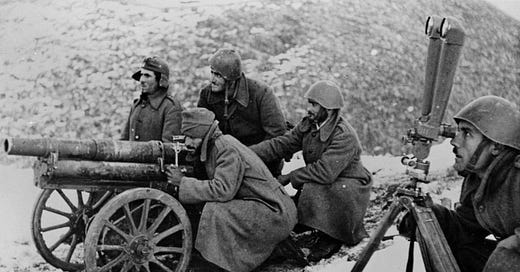How Greece inflicted the first Axis defeat in 1940
Italy had visions of rebuilding the Roman Empire. Greece pushed back, lifting Allied morale at a time when Britain stood alone
Every May, The United States, Britain, France and Russia celebrate Germany’s capitulation in World War Two.
Every October, Greece celebrates an earlier victory, that over fascist Italy in 1940. It did not lead to Italy’s surrender, but as the first Allied victory of the war it demonstrated that the Axis powers could be defeated at a time when they still appeared invulnerable. It enormously boosted morale in Britain, the only other country fighting fascism at the time, and so engaged the sympathy and gratitude of British prime minister Winston Churchill that he secured Greece’s exclusion from the communist bloc and its reunification with the Dodecanese.
The Greco-Italian War was also the only instance of an intra-fascist conflict during the war. The government of Ioannis Metaxas was not fascist in the sense of those of Benito Mussolini and Adolph Hitler in Italy and Germany. It did not intimidate its political opponents through violence, propagate theories of racial supremacy, persecute racial and religious minorities, or pursue an expansionist and revisionist foreign policy. Like the German and Italian fascists, though, it did come to power through the democratic constitution only to abolish it, on 4 August 1936, outlawing all parties and naming the king as sole authority with the people expressing their feelings in an advisory capacity; like them it abhorred communism and imprisoned its leaders; like them it outlawed labour action and sought to control the means of production; it had fascist aspirations to centralised control, establishing a police state and turning the boy scouts into a fascist youth movement; and like Hitler and Mussolini, Metaxas was a control freak, personally leading the foreign, interior, defence and education ministries. This almost pathological desire for command stemmed in part from the extreme instability of Greek democratic politics after the Asia Minor Catastrophe of 1922. The defeat of the Greek army by Kemal’s Turkish nationalists had widened a country-wide schism between royalists and republicans and led to constant coups (there had been two in 1935 alone).




